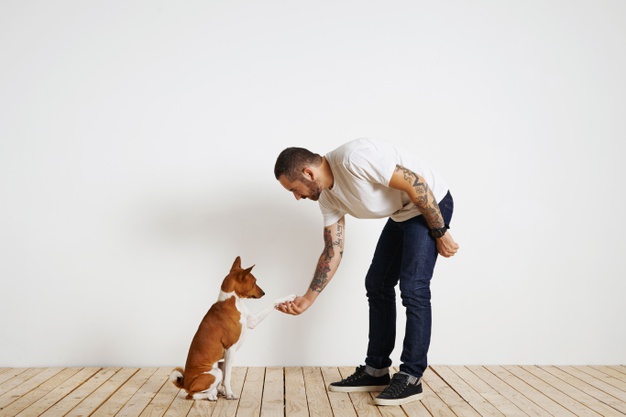
Owning a pet is a lot of responsibility. When considering whether to take on the duties of being a pet owner, one of the things you should think about is training.
This is especially true when getting a young pet. As cute as baby animals are, there are many things they need to learn so that you can cohabitate together in harmony.
Dog training is an important responsibility for dog owners and can often be challenging. Training is critical in dealing with behaviour problems, obedience, and companionship.
Do you not know how to train the new puppy you got? Before you can train your pup, you should train yourself about the basics involved.
Below are some excellent ideas on how to get started.
1. Be Prepared
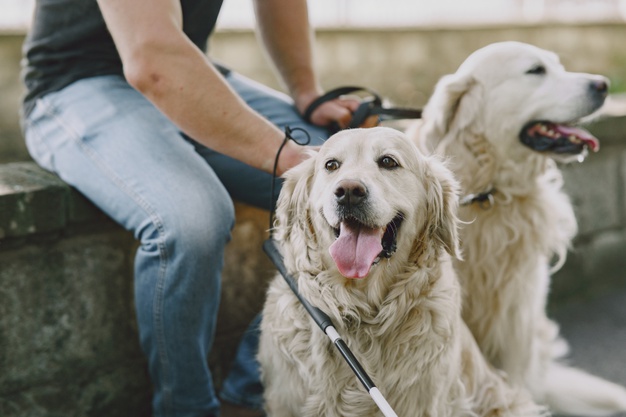
To effectively and properly train your pup, you will need to have the right attitude and be mentally prepared.
Try your best to be patient, and understanding. Do not be surprised if both you and your dog get frustrated at times. It is to be expected when you are learning to live together as companions.
2. Set Rules
Ideally, you should have a list of these rules prepared before your new puppy enters the household.
The rules should include what the dog can and cannot do. For example, will your puppy be allowed on couches or beds?
What locations in the house are off-limits? If you have these boundaries drawn and upheld strictly, it helps avoid confusion for you and the pup.
3. Be Consistent
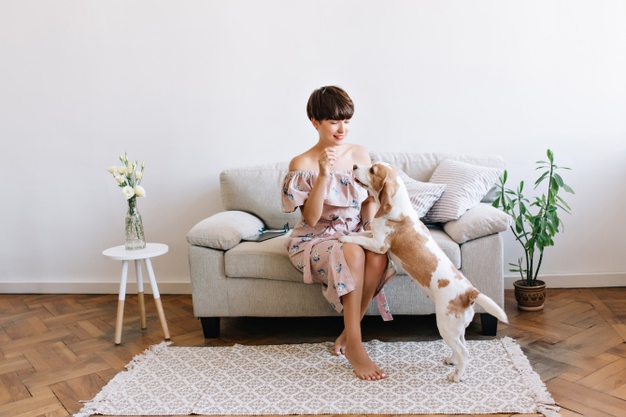
Being consistent with your dog is just as important as consistency is when raising children. Knowing what to expect will go a long way when it comes to learning.
When using commands to teach your dog to behave in specific ways, such as sitting and staying, be sure to use the same command every time you use it.
Ensure that family members also use the same commands to maintain consistency.
4. Maintain Discipline
Now that you have established consistent rules make sure you do not inadvertently break them. The rest of your household needs to help maintain discipline too.
Puppies love to jump about, especially when they get excited. Make sure not to encourage this behaviour, especially during training sessions.
You do not need to punish them when they jump. Turn your back and resume your activity once your pup has settled down.
Similarly, biting behaviour should also be avoided. Try giving your dog chew toys instead.
5. Positive Reinforcement and Repetition
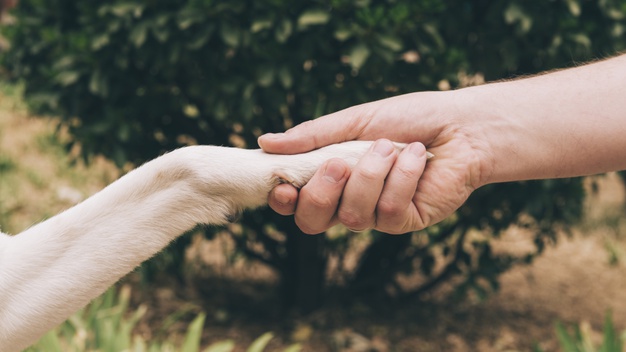
While being consistent and adhering to strict rules is essential, it is just as important to have a positive and encouraging attitude.
When your pup successfully follows one of your commands, rewarding the behaviour is reinforcing.
Reinforced behaviour is repeated. Dogs will associate good outcomes with following commands and performing well.
You can start by using food or toys, but make sure to shower your puppy with praise. Later on, you should use fewer treats and rely only on commands and praise.
A well-trained dog will learn to behave and react well when only verbal cues are given. Like humans, dogs take time to learn new things. Be sure to repeat your training methods so that they pick up on the cause and effect.
6. The Right Environment
Training should always take place in the right environment. Your surroundings should be free of distractions.
It also helps to schedule training right before their mealtimes. As such, they will be hungry and motivated to react to rewards like food.
You also want to be sure that your puppy is eating properly to be in the right mood to learn and perform.
If your puppy is a fussy eater, click here to get tips about encouraging your pup to eat. Because proper nutrition is essential for growth, it is vital to understand the reasons why a dog is not finishing his food.
7. Consider Your Dog’s Perspective
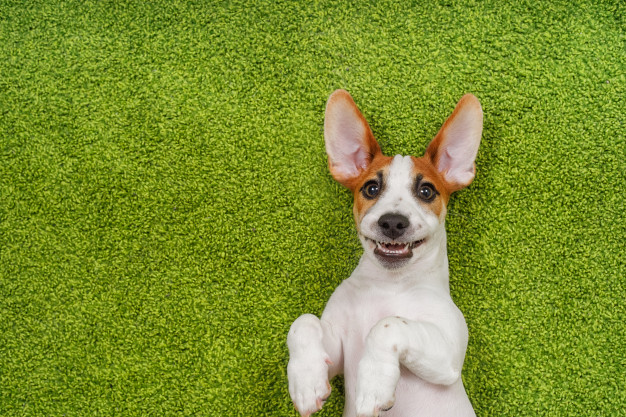
Dogs do not understand language like you or me. As such, they probably do not know that you are trying to teach them new things.
They are much more likely to assume that you are just playing around. They are also liable to forget their lessons.
Thus, you should keep making your puppy do the tasks you trained them to, such as sitting down or coming when called.
Try getting other family members to issue commands too, and have them practice all over the house.
8. Do Not Move Too Fast
It is natural to get impatient sometimes, especially when you are excited to see results. That said, you need to give time for your dog to learn and respond appropriately.
Repeating your commands sets a bad example as your puppy may assume that it is normal for you to issue a command several times before they are expected to carry it out. You need to help them associate the command to your expectations.
9. Dedicate Yourself
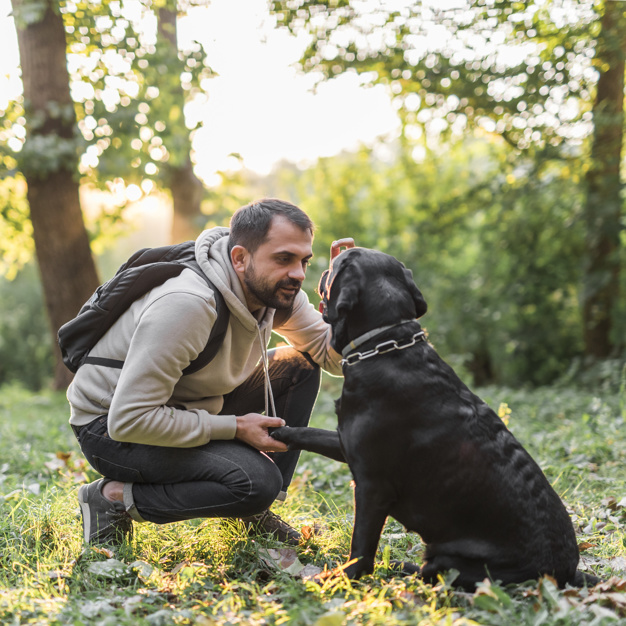
Training should be conducted for at least 15 minutes every day. You should also continue giving commands throughout the day.
If you lack the discipline for training, your dog will not only fail to learn but may pick up bad habits too.
What are the Benefits of Training Your Puppy?

People choose to own dogs to bring them joy and companionship. However, when a pup has behavioural issues and does not obey commands, it becomes a source of stress for both the owner and the dog.
A properly trained dog will give you peace of mind and is in the best interest of the pup as well. While you and your dog work together during training, you will better understand your pup’s needs and become a better pet parent.
By teaching your dog to follow voice commands, you are protecting him and keeping him safe. Consider a situation where your dog gets off his leash.
Your strong voice command that says “stay” will keep him safe from running in front of a car and getting hurt or worse.
Well-trained dogs behave appropriately and respect boundaries when around other pups and in social situations.
If you cannot handle puppy training all by yourself, you might want to consider going for classes. Instructors will give you the guidance to teach your dog to behave.












